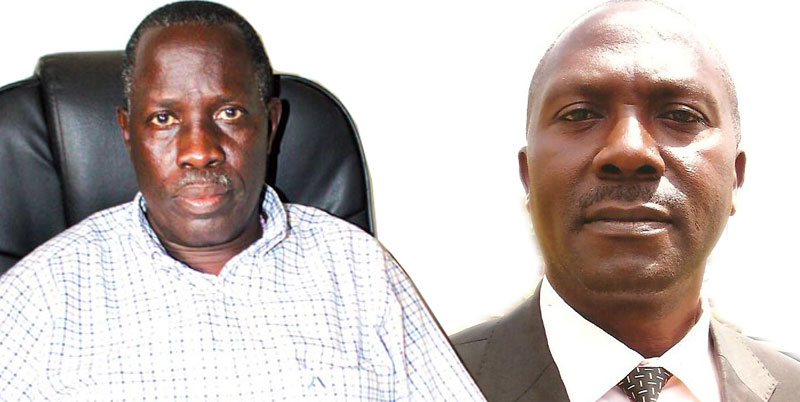human traffickingFeatures
Mpigi, the sleeping town
Leaders blame backwardness on infighting and witchcraft
When one mentions Mpigi town, you may be forgiven to think that this is some remotely located place in Uganda.
Alas! Mpigi town is one of the oldest towns in central Uganda, located just 26 kilometers from Kampala city, and only about 1km off the busy Kampala-Masaka highway. The town has a population of about 5,000 people whose attitudes and outlook betrays their proximity to the city.
As a result, the town has stagnated beyond comprehension. Without access to modern social amenities such as piped water, a modern health facility and tarmacked roads, the town is one of the few towns that have been left by the rapid pace of development witnessed in other parts of the country. The town is inhabited by peasants who supplement their retail businesses with small scale farming, boda boda riding, chapati selling as well as maize roasting as a basis for survival.
The small dusty town, without a visible plan to speak of, has therefore failed to attract serious investors to set up commercial and residential infrastructure facilities as seen in other towns of Buganda such as Mukono, Kira and Wakiso that lie in comparable distances from Uganda’s capital Kampala.
Besides the stagnation in infrastructure development, inhabitants of the small town are engulfed in backward practices such as witchcraft that keeps many scared not just to invest but also to have an open frank discussion on matters affecting their day to day lives.
Not only have small time primitive quarrels pervaded day to day lives, it has crept into day to day lives of the political administration of the town. Last year, for instance, quarrels between Mpigi town council that involved minor verbal exchanges claimed the better part of 2014 with attempts among councilors to impeach their fellow councillors.
What went wrong?
Opinion is divided as to the causes of Mpigi’s predicament, but major themes include poor infrastructure, the diversion of Kampala-Masaka road that used to go through Mpigi among other factors.
Godfrey Ssekitto, the councilor for Kyaali Parish blames the poor state of the town’s infrastructure to conservative and backward mindsets.
Ssekitto adds that the town is held back by tendencies among land owners to hold on to their properties which is preventing investors from acquiring it for development purposes.
Richard Ssenoga, a former Chairman Mutuba 1 Parish and current mayoral contender for Mpigi town in the forthcoming elections argues however that Mpigi’s problem is poor leadership.
He accuses endless fighting and selfish interests in the current administration of Mpigi town council led by Mayor Charles Kyasanku.
“I can’t rule out the fact that infighting between the Mayor and technocrats within the council are holding back development of Mpigi town.”
He attributes the death of the town’s pioneer mayor Joseph Lumu Mazuuku to witch hunt and interpersonal conflicts.
Robert Kabuuka, a councillor and teacher at Fisher Branch Kalagala argues that superstition and negative perceptions are holding back development in Mpigi.
He notes: “People say that whoever builds a bungalow in Mpigi town dies,” this view is held by many of the inhabitants of this sleeping town.
Kabuuka also blames low levels of education among residents and leaders on the poor perceptions and prevailing backward beliefs.
It may be recalled for example that the town became infamous with the least educated councilors when they failed to utter simple English statements during their swearing in ceremonies as LC councillors. These (utterances) “I solomon Afam’ have since become hiralious trademark adverts on Bukedde, a local television while others have become common ringtones on many people’s telephones.
Kabuuka further accuses council leaders for failing to raise funds for social enterprises that can spur businesses and employment and hence low development for the area.
But he also agrees with other leaders who have concurred that Mpigi is unlucky to have a non strategic geographical location coupled with an unfriendly terrain to which they have attributed its snail- pace expansion and development.
Comments



















